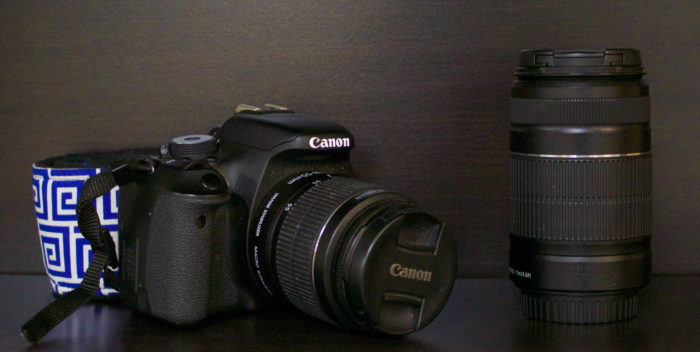Lack of Photography Major Doesn’t Have to Stop Aspiring Photographers
by Morgan German
With the inclusion of cameras on smartphones, it seems like everyone is a suddenly a photographer. College students take photos of themselves and others every day, but just because they are taking lots of photos doesn’t mean that they are necessarily photographers.
That is where Concordia’s photography classes can come in. These classes will teach students how to run “those things that are just cameras, not phones,” as described by Don Robson, Professor of Art and Art Department Chair. These classes can also teach students how to take stronger photographs by considering aspects of their environment such as lighting and composition.
There is not an official Photography major or minor here at Concordia, but Robson says that students can still advance their knowledge by majoring in Studio Art with an emphasis in Photography or by creating a “self-directed” minor that consists of advanced photography courses.
While many students may be interested in photography, and many may take it as a fine arts general education course, there is currently no plan to have a standalone Bachelor of Fine Arts in Photography.
“We are just too small, and we don’t have enough faculty to do that,” Robson said.
For students who are interested in photography, Robson says that there are other classes that Concordia offers in addition to the Basic and Advanced Digital Photography classes that can help advance students’ photography knowledge. One such class for students who are not just interested in still photography is called “Intro to Digital Video Production,” which focuses on motion photography.
Classes such as Collage and Mixed Media can offer students opportunities to incorporate photography into their projects, and in the Digital Imaging Class, students can use cameras to create stop-motion graphics.
If students are interested in going farther with photography and especially if they are thinking of turning it into a side business, Robson says to talk to people who already have their own photography businesses and get advice from them. Ali Shuerman Evans, who is teaching one of the sections of Basic Digital Photography this semester, also runs her own photography business, so making connections with people who are already in the field can be helpful.
“I would get out and talk to people and see if you could do an internship with these places,” Robson said.
“We are in a culture where people don’t want to take the time to understand the mechanics of things. They just want to do it,” Robson said. “Often, with the cameras that we check out, students will not know what they should do, but they very seldom pull out the manual.”
“Just because that’s at your disposal all the time doesn’t mean that people know how to take good photographs,” Robson said. “There are lots of programs and filters to make photos look a certain way. My philosophy is anyone can use those filters, but it’s better if you know how to take a good photography first and you rely less on filters.”
In addition to knowing how cameras work, understanding what makes a good photograph can help those photos stand on their own without much editing.














